Lucinda Croft spoke with Alex Noel about how God led her to set up The Wholesome Warehouse, a charity that tackles the needs of the most vulnerable in West Sussex
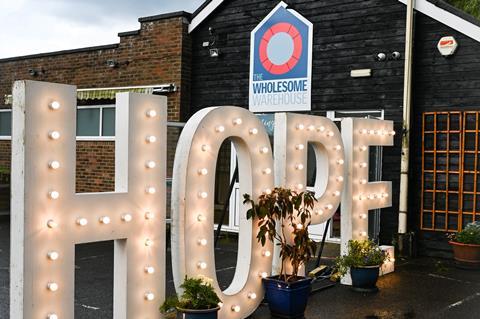
Speaking on the phone one hot day back in August, I was immediately struck by how positive Lucinda Croft is. Fizzing with youthful energy and full of stories of God’s goodness and faithfulness, it’s refreshing to listen to her. Lucinda shared about herself openly, and explained what led her to set up what she affectionately calls the ‘Wholesome’.
Lucinda was in her early 20s when a friend invited her to join an Alpha Course. It was the 90s and she was freshly back in the UK from working in New York. Keen to explore her blossoming faith, she found herself in a discussion group with James and Henrietta Odgers, founders of the Besom – a network connecting people wanting to give with those in need.
“I was basically adopted by [them]…I ate more at their house than I did at my own.” An actress at the time, she worked with the Besom in London while auditioning for acting parts: “it was brilliant because the Besom helped me keep my feet on the ground…I’d be changing in the back of the van for an audition, and afterwards I’d change again then drive and deliver a bed for one of the vulnerable families.”
The experience kindled in her a lifelong passion: “That’s where I really fell in love with working with the poor. Because it was so satisfying…we’ve always called it ‘faith on a plate’. You just see God do stuff every day and it never gets tiring.” Now in her mid-50s, Lucinda is seeing the realisation of a dream first planted in those early days: “I always thought when I was 50 I wanted to start my own Besom.”
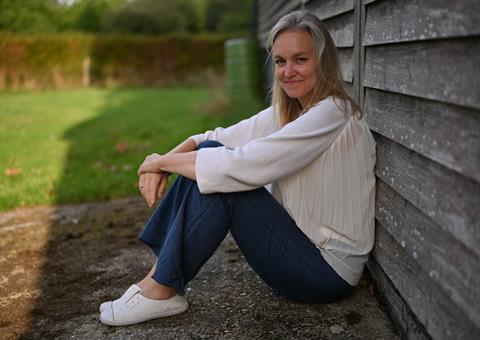
Starting something new
The next few years were packed; she got married to Simon, and stayed at the Besom until becoming a mum. Then in 2006, following her mother’s death, she took on the family business ‘Dragons of Walton Street’, which sold luxury hand-painted children’s furniture to the super rich. “Some of the clients we had were very difficult and I remember saying to God: ‘This had better be for something; it can’t just be for business.’ I was there for [nearly] 15 years and then we sold the business.”
By then settled in Sussex, Lucinda went part-time and started Besom Brighton; connecting with churches and organisations in the area, including Christians Against Poverty, housing associations, social workers and council services that could refer people in need. The Dragons’ van was recommissioned to deliver furniture to the poor.
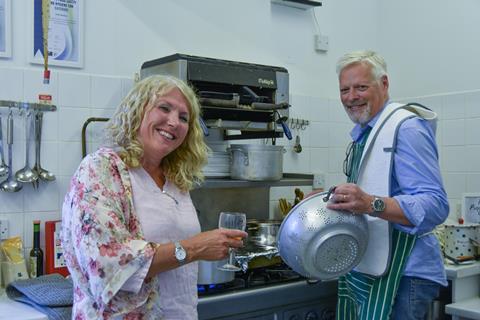
It turned out that God had more in mind for Lucinda than simply starting her own Besom. “As I was just working things out, my son said to me: ‘Mum, I really think you need to re-ask God if he wants you to do a fresh expression.’ And I was like: ‘No, don’t be ridiculous…it’s arrogant to start another charity – there are so many amazing ones.’”
However, something in what he’d said rang true. “I just felt like I’d got stuck…so I was just asking the Lord and praying. I was in church one day and (in my mind’s eye) I saw the words ‘The Wholesome Warehouse’; I just knew that was what I had to call it.”
I remember saying to God: ‘This had better be for something; it can’t just be for business’
Despite being sure of what she’d experienced that day, Lucinda wasn’t convinced about the implications of starting a new venture. “I simply wanted to work with the poor – I didn’t want to be messing about starting a charity. But the moment that I moved to ‘The Wholesome Warehouse’ I suddenly had traction. All these years of crying and praying and wanting people to want to work with the poor – it was just like one of those bits in the Bible where it says: ‘And suddenly’.”
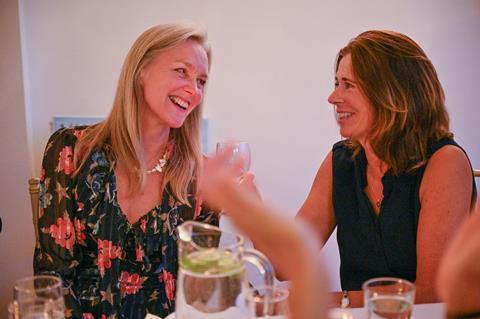
Finding a new home
The Sussex barn she’d been lent was no longer fit for purpose either. And already wondering whether they should focus closer to home, things soon came to a head: “One of my volunteers said to me: ‘Lucinda I can’t do another winter in this barn. We’re sharing with the rats and the mice. There’s nowhere to go to the loo, there’s nowhere to wash my hands.’ I thought: ‘She’s right. We can’t do another winter here.’”
Shortly after, Lucinda was driving through nearby Storrington, and felt compelled to stop by a building she’d heard about. Walking inside she found four people talking together who she discovered were the trustees of the building. “I asked: ‘Is this building for sale?’ and they replied: ‘Oh you’re a bit late; we’re deciding tomorrow who’s going to buy it.’ I walked around and saw it had everything I wanted: a kitchen, a big area for seating and for dining tables. [It] had a place to store furniture. I started to tell these guys what I would do with the building if I was allowed to purchase it.”
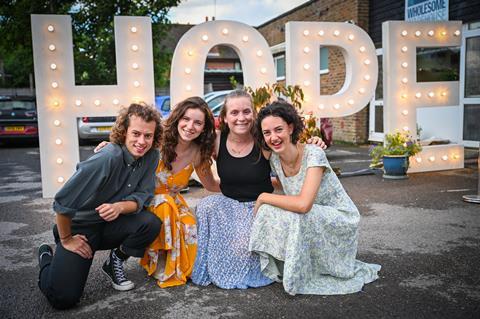
Amazingly, God had already provided an investor: “I told them that I’d lined this man up to fund it who was a cash buyer. They said: ‘OK we’ll give you 24 hours.’” The next day Lucinda was back at the building with her investor. “There were all these developers leaning against their smart polished cars in their snappy suits and then we arrived in our clapped-out van. [The trustees] said: ‘You know if you want to buy it we are going to drop the price because we’d rather you have it.’” Taking a moment to consider the offer, Lucinda and her investor looked at each other. “I asked: ‘What do you think?’ And he nodded and said: ‘Yeah I think we should do it.’ We opened it within ten days. It was amazing…a real dream come true.”
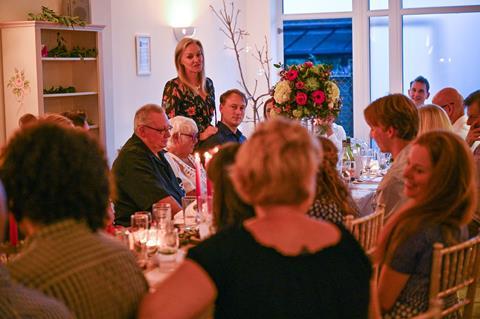
Nevertheless, launching in 2020 was challenging; “During COVID I realised the only way we could be in touch with families was through food. I had never wanted to do food; it was the last thing on my list.” But as ‘key workers’ supplying food they could build relationships with people and journey with them during the pandemic. “We set up this system that we’re still using today. [People] get a wholesome cooked meal, fresh vegetables donated by local fresh produce stores and a cake made by some local bakers.”
Growing and seeing God move
Now in its third year, The Wholesome Warehouse has 20 to 30 regular volunteers. They make deliveries to people twice a week and ideally the volunteers go to the same people each time: “The idea is that we’re ‘alongsiding’ people. It’s like a deposit of love and so we pray for people if they’d like to be prayed for. So many people we meet are in crisis; we’re with them in that vulnerable moment and are able to offer them support – and we tell them about the Lord too.”
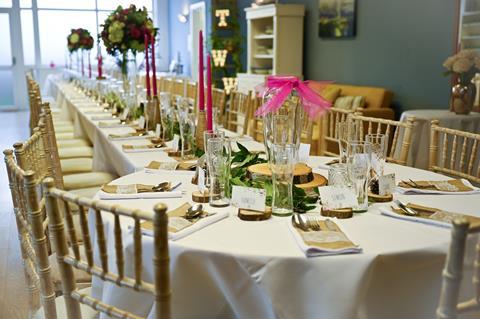
They provide an average of 960 meals per month, and have delivered furniture to 150 households so far. The charity continues to grow. “It’s so big now by comparison. My husband and I have used our business jobs to pay for us to be here. But now the balance is shifting and I need to be here more, which is really exciting but now we need some salaries for us.”
‘I just wanted to work with the poor – I didn’t want to be messing about starting a charity’
Lucinda can tell story after story of answered prayers and miraculous provision; among them: the mother and daughter who, after two years of waiting, finally got heating in their home after Lucinda’s husband advocated for them; the professional cleaner who appeared out of nowhere during COVID to hoover a filthy flat they’d delivered to, free of charge; the spare bike she remembered when visiting a very upset child whose bike had just broken; and the woman who joyfully discovered during a debt counselling appointment that huge debts from an abusive partner could be written off. Even while chatting on the phone she suddenly interjected to tell me excitedly: “We needed a corner sofa…and we’ve just been given a corner sofa!”
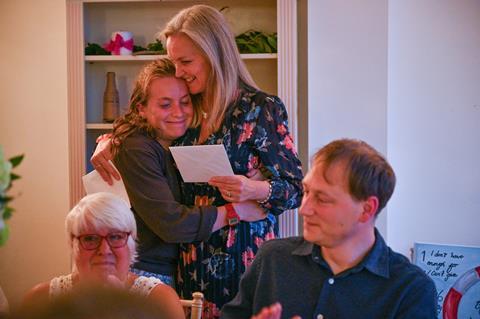
At the end our conversation I ask her what advice she’d offer to someone with a dream from God: “Just do the next thing,” she says. “And remember that lovely scripture [Zechariah 4:10] – ‘Don’t despise the day of small beginnings’”
To find out more, and to support financially or practically go to thewholesomewarehouse.com




























No comments yet